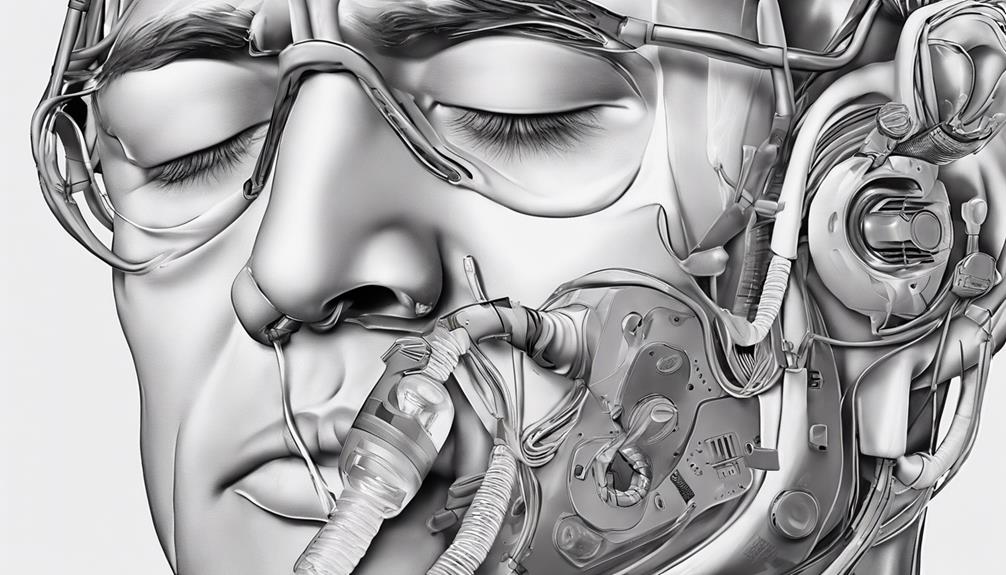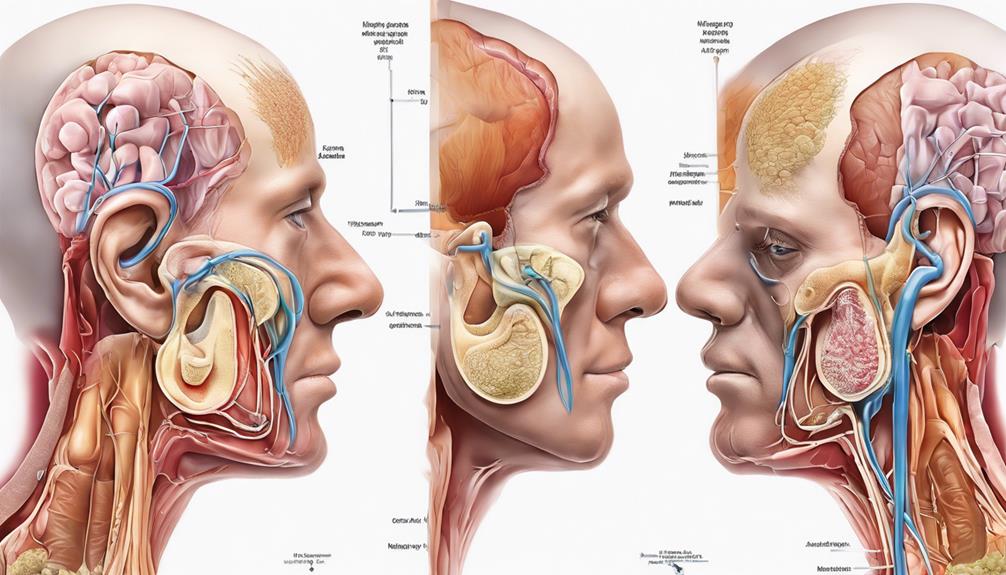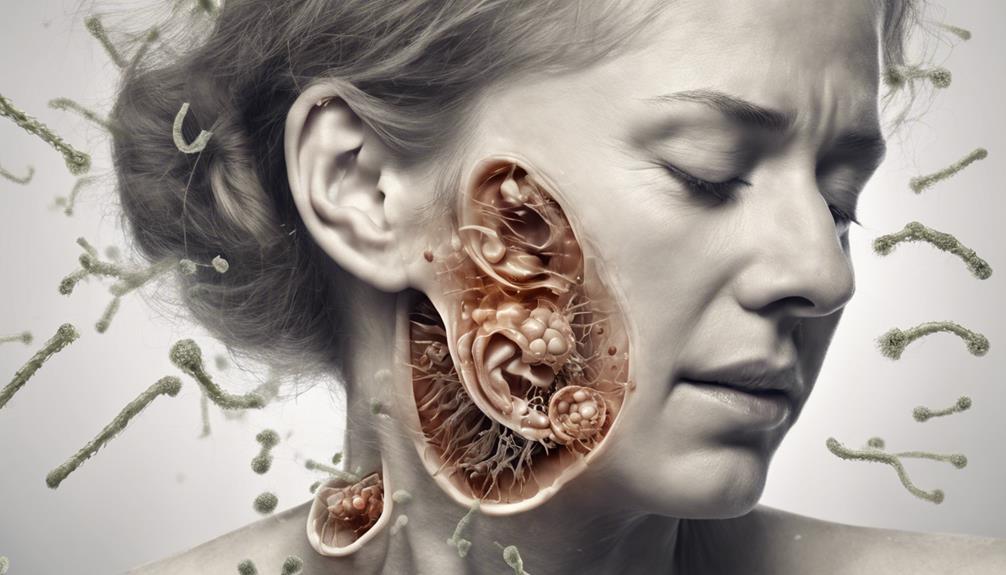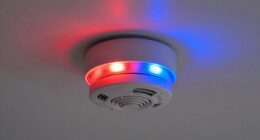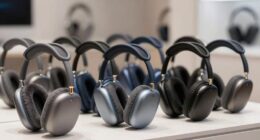It is often said that prevention is better than cure.
When it comes to CPAP therapy, one might not immediately associate it with hearing loss. However, what if I told you that there's a potential connection between CPAP and hearing issues that might surprise you?
Before dismissing this notion, consider the implications it could have on your overall health. It's essential to understand the mechanisms behind CPAP-induced hearing loss to make informed decisions about your treatment.
Key Takeaways
- CPAP induces otic barotrauma, leading to sudden hearing loss and tinnitus.
- Increased middle ear pressure from CPAP can cause tympanic membrane perforation.
- Improper CPAP titration raises risks of otic barotrauma and hearing complications.
- Understanding CPAP-related hearing risks is vital for effective prevention and treatment.
CPAP and Its Impact on Hearing
CPAP therapy enhances the pressure within the middle ear cavity, potentially leading to detrimental effects on hearing structures. The increased pressure from CPAP therapy can predispose individuals to conditions like hearing loss and tinnitus due to otic barotrauma.
Research indicates a significant elevation in middle ear pressure during CPAP use, highlighting the importance of proper CPAP titration to mitigate adverse effects on the delicate middle ear structures. Failure to adjust CPAP settings appropriately may result in severe consequences such as pneumocephaly, pulmonary barotrauma, or even tympanic membrane perforation.
Understanding the impact of CPAP therapy on the middle ear is crucial for healthcare providers to prevent potential hearing-related complications. Therefore, meticulous monitoring and adjustment of CPAP settings are essential to ensure that patients receive the benefits of therapy while minimizing the risk of harm to their hearing health.
Mechanisms of CPAP-Related Hearing Loss
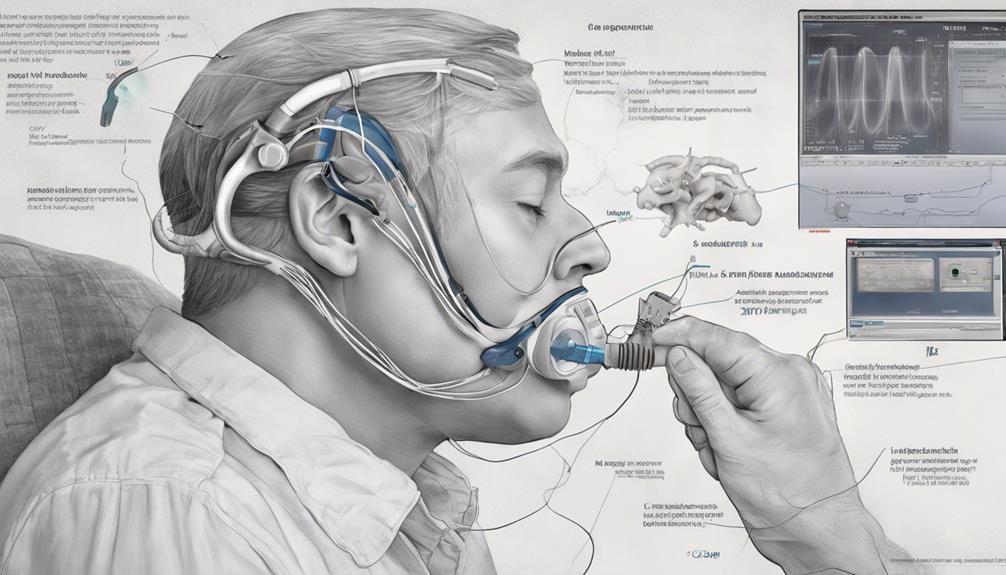
During the application of continuous positive airway pressure (CPAP) therapy, intricate mechanisms within the middle ear cavity may contribute to the development of hearing impairment.
- CPAP therapy can induce otic barotrauma, leading to sudden hearing loss and tinnitus by elevating middle ear pressure.
- Increased middle ear pressure during CPAP usage can cause adverse effects like tympanic membrane perforation.
- Changes in middle ear pressure from CPAP can result in opacification of middle ear and mastoid air cells, impacting hearing function.
- Improper CPAP titration or self-adjustment may heighten risks of otic barotrauma, emphasizing the need for accurate CPAP management.
- Understanding the potential for CPAP-related hearing loss is crucial for healthcare providers and patients to prevent adverse events and ensure effective treatment of sleep apnea.
These mechanisms underscore the importance of meticulous monitoring and adjustment during CPAP therapy to safeguard against potential hearing complications.
Research Findings on CPAP and Hearing
Examinations of the relationship between continuous positive airway pressure (CPAP) therapy and hearing have revealed significant insights into potential auditory complications. Studies indicate that CPAP can induce sudden hearing loss and tinnitus through otic barotrauma, primarily caused by increased pressure in the middle ear.
Research has demonstrated a notable elevation in middle ear pressure due to CPAP therapy, leading to possible damage such as opacification of the middle ear and mastoid air cells, which can impact hearing function. Furthermore, improper CPAP titration, including self-adjustment, may result in alterations in middle ear pressure, contributing to middle ear complications and potential hearing issues.
Understanding the risks associated with CPAP and its impact on the middle ear is crucial for mitigating the risk of hearing loss and related auditory problems. Continued research into the effects of CPAP on hearing function is essential for developing strategies to prevent CPAP-induced hearing impairments.
Strategies to Prevent CPAP-Induced Hearing Loss
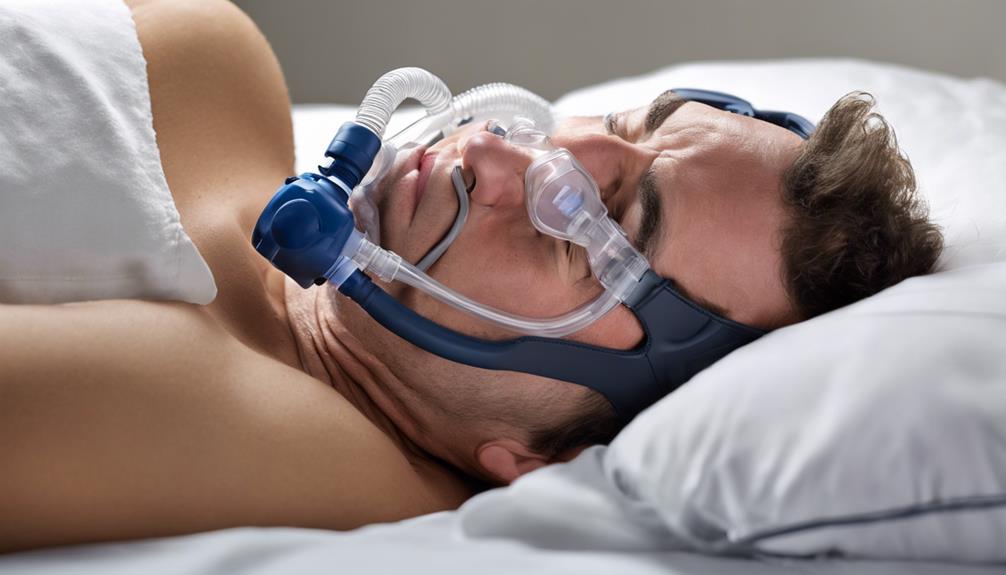
To reduce the risk of hearing loss associated with continuous positive airway pressure (CPAP) therapy, implementing proper titration techniques and regular monitoring of middle ear pressure are essential preventive strategies. When aiming to prevent CPAP-induced hearing damage, the following strategies can be beneficial:
- Conduct precise CPAP titration to ensure optimal air pressure delivery.
- Monitor middle ear pressure regularly during CPAP therapy to detect any fluctuations.
- Schedule ENT evaluations periodically to assess the impact of CPAP on hearing health.
- Educate patients on the risks of excessive CPAP pressure and the importance of adherence to prescribed settings for safe CPAP usage.
- Utilize CPAP machines equipped with advanced pressure monitoring features to minimize the likelihood of hearing impairment.
Healthcare Recommendations for CPAP Users
Regular audiological assessments are essential for monitoring potential hearing changes in individuals utilizing CPAP therapy. CPAP users should undergo regular audiological evaluations to detect any early signs of hearing loss.
Understanding the signs and symptoms of hearing loss is crucial for CPAP users to seek timely medical intervention. Maintaining proper CPAP machine settings and adherence to recommended CPAP titration can help reduce the risk of developing hearing issues.
Awareness of otic barotrauma risks associated with CPAP therapy is essential, emphasizing the importance of proper pressure adjustments. Collaboration between sleep medicine specialists and audiologists is paramount in addressing any hearing concerns promptly.
Healthcare recommendations for CPAP users include regular audiometric evaluations, education on hearing loss symptoms, adherence to CPAP machine settings, awareness of barotrauma risks, and seeking professional help when experiencing any hearing-related issues. By following these recommendations, CPAP users can better manage their hearing health while benefiting from effective sleep apnea treatment.
Frequently Asked Questions
Can a CPAP Machine Cause Hearing Problems?
Yes, a CPAP machine can cause hearing problems. Excessive pressure from CPAP therapy may lead to otic barotrauma, resulting in sudden hearing loss and tinnitus.
The increased pressure in the middle ear cavity can impact hearing and cause issues like tympanic membrane perforation. Proper CPAP titration is essential to prevent adverse effects on hearing and ensure effective treatment for obstructive sleep apnea.
Monitoring for potential hearing complications is crucial during CPAP therapy.
How Long Will It Take to Reverse Damage From Sleep Apnea?
We, as experts in sleep medicine, stress that the duration required to reverse sleep apnea damage varies based on individual factors.
Consistency in adhering to treatment plans is crucial for successful reversal. Improvement, including addressing symptoms like hearing loss, may be gradual and necessitate ongoing monitoring.
Early detection and treatment are key for optimal outcomes. Consultation with healthcare professionals ensures personalized guidance on the reversal process and expected timelines.
Why Do I Wake up After 4 Hours on My CPAP Machine?
When we wake up after 4 hours on our CPAP machine, it could be due to mask discomfort, air pressure changes, mask leaks, or dry mouth. Proper mask fit, humidity settings, and pressure adjustments are key to improving comfort and reducing interruptions.
Consulting with a healthcare provider or CPAP specialist can offer personalized solutions to enhance therapy effectiveness. Adapting to the machine may take time, impacting our sleep quality initially.
What Is the Life Expectancy of Someone With Sleep Apnea With a CPAP Machine?
With proper adherence to CPAP therapy, individuals with sleep apnea can experience a significant improvement in their life expectancy. Studies indicate that consistent CPAP usage reduces the risk of complications associated with sleep apnea, leading to enhanced cardiovascular health and overall well-being.
Conclusion
In conclusion, our investigation into the impact of CPAP therapy on hearing has revealed a potential risk of hearing loss associated with excessive pressure levels.
By understanding the mechanisms of CPAP-induced otic barotrauma and implementing proper titration protocols, healthcare providers can mitigate these risks and ensure patient safety.
Further research is needed to validate these findings and develop strategies to prevent CPAP-related hearing complications.
Stay informed and prioritize your ear health while undergoing CPAP treatment.

